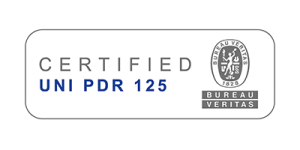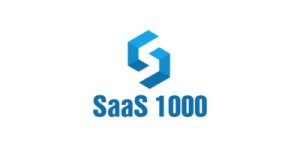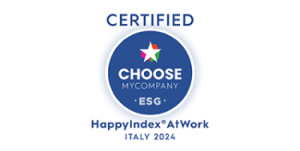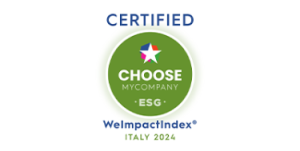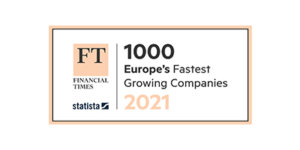
Hybrid work: a year of WoW for Growens
One year after the official adoption of a hybrid and flexible working model, Enrica Lipari, People & Culture Director at Growens and promoter of this initiative, shares the challenges, possibilities and results of the programme.
It’s already been a year since the launch of the Growens WoW Manifesto and yet it seems like the way we work has always been WoW.
Our Way of Working (WoW) is a program that establishes the basic rules for working in our Group. It was born with the aim of transforming the temporary experience of pandemic-induced remote-first approach into a cultural and structural element, guided by a specific organizational vision.
In fact, our “way of working” is not only about the location we work from, but above all it’s about the ways we organize our work and timetables, and collaborate around shared objectives. This is why, every person can choose whether to work from home, from the office or from any other place they prefer, at all times.
Growens’ predisposition to agile work
When I started at Growens as People & Culture Director, I found an incredibly progressive organizational context, based on values (Trust, Passion, Open Mindedness and Caring) extremely functional to an agile way of working. With “agile” I refer to a way of working focused on valuable interactions, continuous adaptation to needs (both personal and the market’s) and an iterative and incremental “productive” mode.
I therefore felt that the People & Culture department had a responsibility to enhance these elements. The WoW approach seemed like the most consistent way to improve the development of our practices and consequently the growth of our people, and so we embraced it.
The impact of hybrid work at Growens
As usual, numbers speak for themselves. Out of a population of almost 500 people, totally free to work either from the office or remotely, this year we recorded 688 days worked from places other than usual, accepting 71 requests to work “from elsewhere” and thus enabling our people to work from more than 17 new countries.
This, together with a general increase in people’s commitment to their teams and to the company, ensured that people achieved results in line with expectations.
When asked how I “brought the management on board,” I’m happy to say I didn’t have to. I found a mature mindset, ready for flexible and hybrid work.
The management (from the founders to the leaders of the various functions) first cooperated in drafting the Manifesto, so as to make the guidelines suitable to each BU and department of the Group in line with their respective habits and cultures.
Subsequently, they adopted the model both through their own choices and those made by their team members.
My assessment is therefore positive. The guidelines have been accepted and implemented with due responsibility, both by those who apply and by those who accept the requests, so as to best balance personal/family needs with professional/organizational ones.
Challenges and tips for agile working
The biggest challenges were of an administrative/operational nature.
Behind the scenes of a seemingly simple and straightforward process lies an important work of the People Operations team, from a number of points of view – tax, social security and safety (relating to the person and the data processed), which cannot be overlooked for organizations of our complexity.
We have gradually improved the process of evaluating and approving requests, adapting it to the needs of both people and the organization. Moreover, we want this project to evolve to unlock new opportunities for international mobility for longer periods than the current “anywhere” option and/or to hire people in countries where we do not have a registered office.
However, I don’t think there are any magical recipes or high-performance solutions in a specific company that can guarantee the same success in other companies as well.
I do not find it necessary that all companies necessarily become agile or digital, nor that they necessarily evolve into a culture favorable to remote work.
But, if something isn’t working or you want to get different results, you have to be ready to adopt new solutions and to experiment, setting goals, validating and verifying them.
Therefore, I recommend that you observe the context, listen to the needs of your stakeholders and try, scientifically try. This is the culture of adaptation, which will not necessarily lead to agile work, but certainly to survival.
Next steps
Improvement areas lie everywhere. At the moment, the following areas are where I mean to focus:
- The first one has a lot to do with the organization of work from the office, home and elsewhere. I’d like to offer a shareable platform where you can add information about your workplace on a specific date. Personally, I like to share on my calendar the days when I’m in the office, so as to free those days from remote meetings as much as possible.
- The second one is related to the way we handle requests from an administrative point of view. We have now gathered a lot of information and consolidated a good experience, so I’d like to be able both to automate part of the work to lighten the load, and to reduce the response times to colleagues.
- The third concerns an investment to make our time in the office more meaningful. In recent years much investment has been made to enable working from home and new remote working options (also through partnerships with co-living providers, which facilitate access to work from elsewhere even for those who do not have consolidated travel experience nor least of all qualify as digital nomads).Conversely, offices have been somewhat emptied of those moments of conviviality that make the office experience so unique. For this reason, through a survey we asked employees which elements could make the experience in the office more rewarding – and we are now working to implement them.
Wrap up
As already mentioned, we aim for continuous improvement, approaching what we call “Global Mobility“.
In 2023 we will aim to consolidate processes and structures, in order to be able to offer the opportunity for international mobility for the so-called digital nomads (of which we are clearly very populated, being a prerogative of digital professions) and/or to hire people residing in countries where we have no registered offices.
Article by Enrica Lipari,
People & Culture Director, Growens


